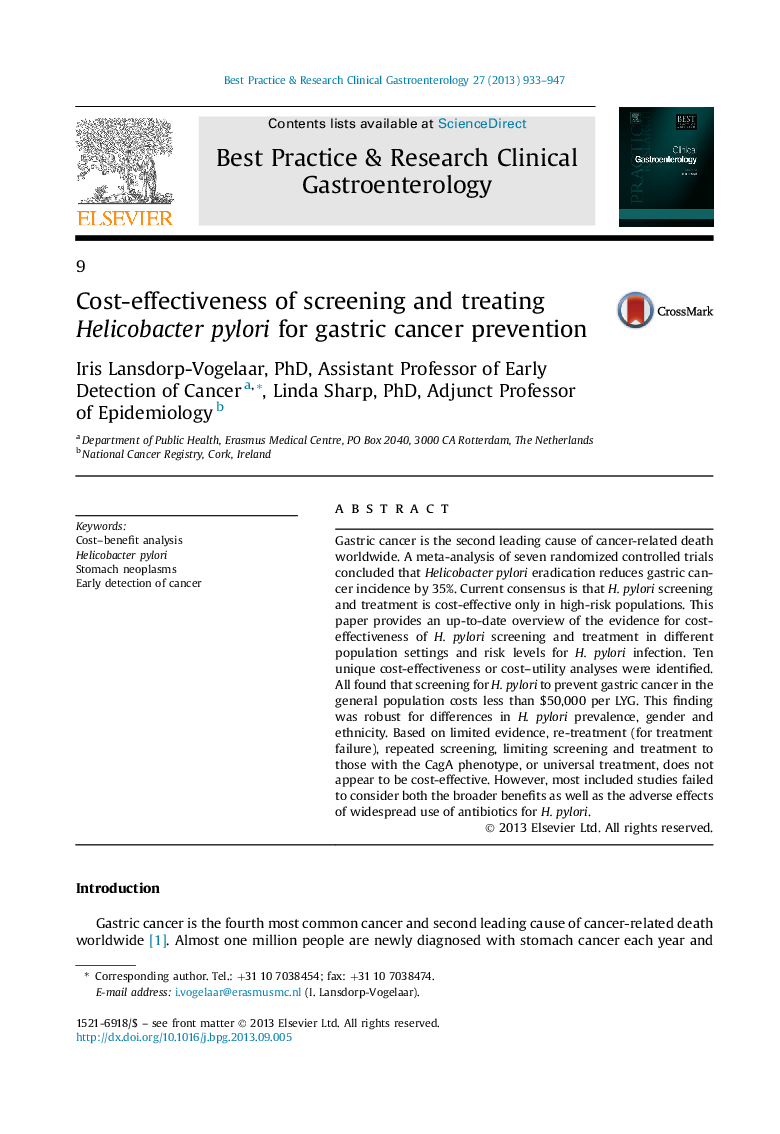| Article ID | Journal | Published Year | Pages | File Type |
|---|---|---|---|---|
| 6086435 | Best Practice & Research Clinical Gastroenterology | 2013 | 15 Pages |
Gastric cancer is the second leading cause of cancer-related death worldwide. A meta-analysis of seven randomized controlled trials concluded that Helicobacter pylori eradication reduces gastric cancer incidence by 35%. Current consensus is that H. pylori screening and treatment is cost-effective only in high-risk populations. This paper provides an up-to-date overview of the evidence for cost-effectiveness of H. pylori screening and treatment in different population settings and risk levels for H. pylori infection. Ten unique cost-effectiveness or cost-utility analyses were identified. All found that screening for H. pylori to prevent gastric cancer in the general population costs less than $50,000 per LYG. This finding was robust for differences in H. pylori prevalence, gender and ethnicity. Based on limited evidence, re-treatment (for treatment failure), repeated screening, limiting screening and treatment to those with the CagA phenotype, or universal treatment, does not appear to be cost-effective. However, most included studies failed to consider both the broader benefits as well as the adverse effects of widespread use of antibiotics for H. pylori.
